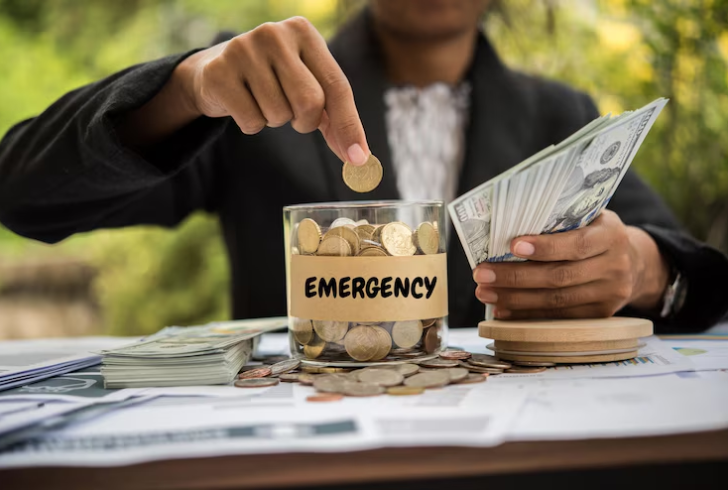The Real Key to Financial Security Isn’t Wealth—It’s Saving $2,000
When thinking about financial peace of mind, it’s natural to assume that a massive income or a seven-figure investment portfolio is the golden ticket. But recent findings from Vanguard challenge that belief with a surprisingly simple insight: just having $2,000 saved for emergencies can do more for overall financial well-being than having $1 million in assets.
A survey conducted by Vanguard that included more than 12,000 of their investors found something eye-opening. Financial well-being, which reflects confidence in managing day-to-day finances and planning for the future, was most strongly linked not to wealth or high income—but to whether someone had just $2,000 tucked away for a rainy day.
How a Small Emergency Fund Creates Big Stability

Freepik | EyeEm | A $2,000 emergency fund is more vital for financial health than $1 million in assets.
The numbers are clear and a bit unexpected. According to the survey:
– Having $2,000 in emergency savings led to a 21% boost in financial well-being.
– Earning $500,000 a year only increased financial well-being by 12%.
– Holding $1 million or more in assets provided an 18% increase.
This shift in perception around financial security is key, especially when most people would guess a high salary or investment balance would lead the way. The takeaway? Readiness to face a sudden expense matters more than how much someone has in their investment account.
The Psychological Power of Being Prepared
Being financially well doesn’t mean being wealthy. It means feeling secure, able to handle surprise costs, and having options when life throws a curveball. As the Consumer Financial Protection Bureau puts it, financial well-being is about having the capacity to meet obligations and feeling secure about the future.
Vanguard behavioral economist Paulo Costa, who co-authored the study, summed it up perfectly:
“You don’t need a fortune to feel financially safe. Just having a modest emergency cushion—like $2,000—can ease financial stress significantly.”
He also pointed out that even though many assume $1 million should deliver more peace of mind, it doesn’t necessarily provide immediate help during emergencies. Retirement accounts, for instance, often come with withdrawal restrictions, taxes, and penalties, especially for those under age 59½. Meanwhile, a $2,000 bank balance is instantly available to cover an unexpected medical bill or car repair.
Why That $2,000 Makes a Real Difference
The median cost of a financial emergency lands right around $2,000. So, having that amount ready to go isn’t just comforting—it’s practical. It means not putting a crisis on a high-interest credit card or delaying care or repairs because of money concerns.
Another interesting outcome from the study:
People with emergency savings spent around two fewer hours per week worrying about their finances. That’s more time and mental space for living—not stressing.
Not Everyone Can Easily Set That Money Aside

Freepik | The Federal Reserve reveals that close to 40% of Americans are unprepared for a $400 unexpected cost.
Even though $2,000 makes a clear difference, reaching that number can be tough for some. Almost 40% of Americans say they couldn’t afford a $400 surprise expense without borrowing or selling something, according to the Federal Reserve.
Still, there are signs of progress. A separate study from Primerica found that 64% of middle-income Americans now have at least $1,000 set aside for emergencies—an improvement from just 58% two years ago.
For those still working toward that $2,000, Costa suggested starting small:
– Put aside $10 a week—it adds up.
– Try automating deposits into a savings account right after payday.
– Saving $50 a week would get someone to $2,000 in less than 12 months.
Costa emphasized:
“It’s not about saving everything all at once. Even small, steady steps make a huge difference. The act of saving itself builds confidence.”
Building Financial Confidence One Step at a Time
The key lesson from Vanguard’s research isn’t about reaching millionaire status. It’s about what brings peace of mind in the real world: being prepared. Just $2,000 in an emergency fund can boost someone’s financial confidence, lower stress, and reduce worry—even more than a hefty paycheck or portfolio.
In a time when many are anxious about the rising cost of living and uncertain economic trends, taking that first small step toward financial readiness might be the smartest move of all.